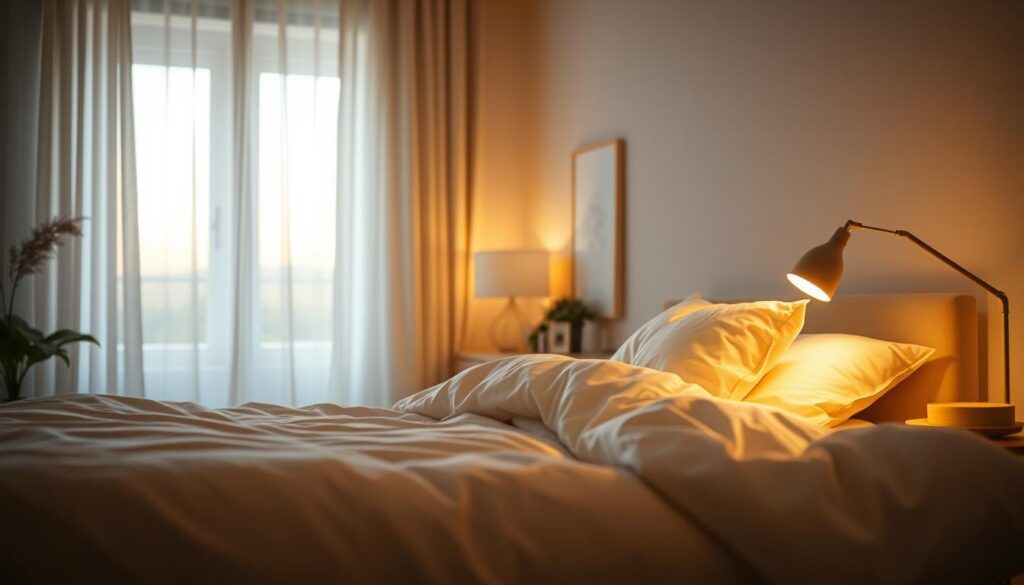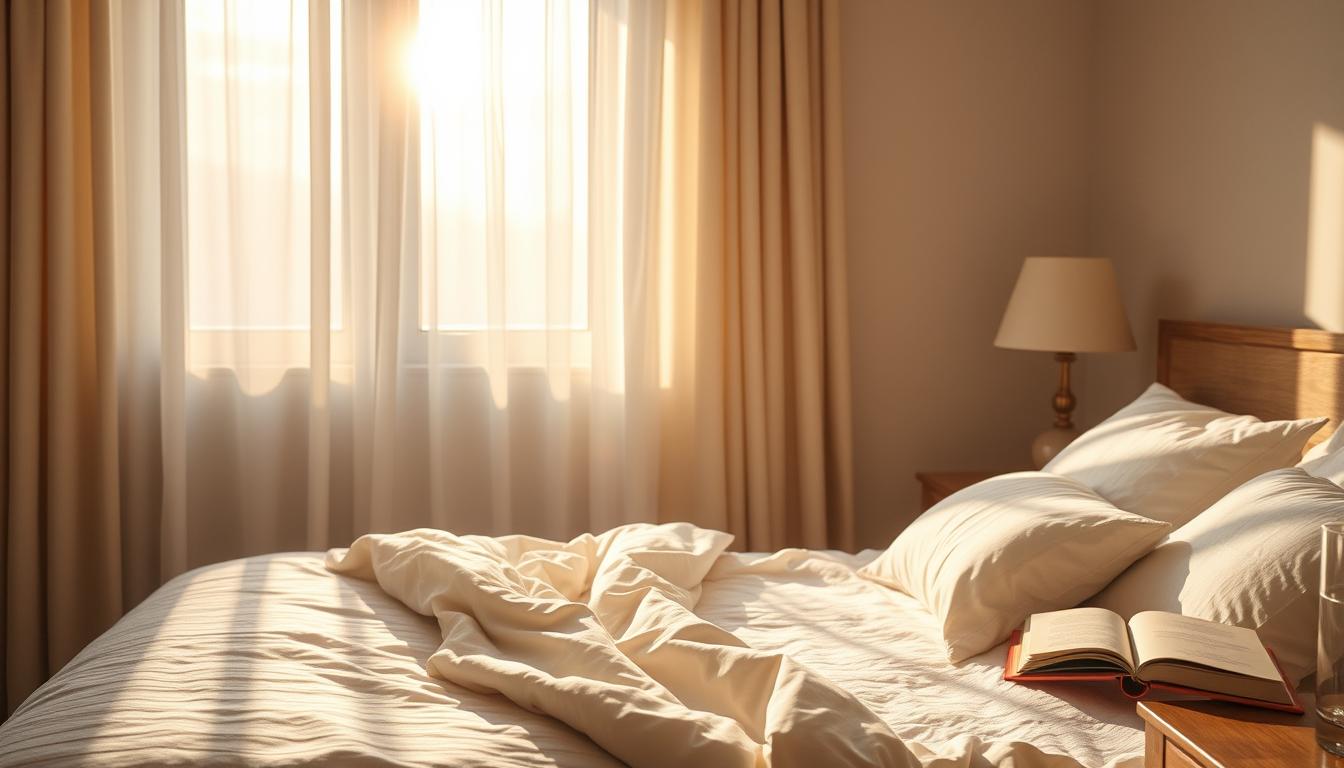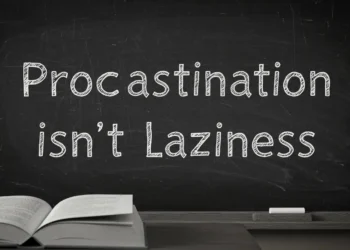“Sleep is the ultimate performance enhancer—yet we’ve become a culture that wears exhaustion as a badge of honor.” Arianna Huffington’s words challenge the modern myth that productivity thrives on burnout. What if the secret to peak performance isn’t grinding harder, but resting smarter?
Science reveals that quality sleep fuels brain function, emotional resilience, and physical vitality. Research from Johns Hopkins University shows that during deep sleep, the brain clears toxins linked to Alzheimer’s—twice as fast as when awake. Yet 1 in 3 U.S. adults skimps on nightly rest, risking long-term health consequences.
Optimizing your circadian rhythm isn’t just about clocking hours. It’s crafting a bedtime routine and environment that signal “time to recharge.” Simple changes—like reducing blue light exposure before bed or choosing supportive mattresses—can transform restless nights into restorative ones.
This guide blends neuroscience with practical strategies from Mastering Sleep Hygiene. You’ll discover how consistent habits—paired with a calming bedroom setup—strengthen mental clarity, reduce stress, and protect against chronic diseases. Ready to unlock sleep’s transformational power?
Key Takeaways
- Sleep directly impacts brain performance, mood stability, and long-term disease prevention.
- Adults needing 7+ hours nightly often see improved focus and decision-making skills.
- Dark, quiet bedrooms free from screens enhance melatonin production for faster sleep onset.
- Regular bedtimes train the body’s internal clock, improving sleep quality over time.
- Small adjustments to evening routines can create compounding health benefits.
Understanding the Importance of Sleep
The silent architect of daily success isn’t found in productivity hacks—it’s woven into the fabric of nightly rest. Studies in Mastering Sleep Hygiene reveal that consistent sleep quality acts as a biological Swiss Army knife, sharpening mental acuity while repairing cardiovascular tissue.

Your Body’s Nightshift Crew
While you sleep, your body deploys repair teams. Research shows:
| Hours Slept | Cognitive Performance | Disease Risk |
|---|---|---|
| 7-9 | 94% alertness | 27% lower |
| 5-6 | 62% alertness | 53% higher |
| <5 | 31% alertness | 112% higher |
This nightly maintenance cycle explains why hospital night-shift workers show 40% higher diabetes rates—their circadian rhythm never syncs with repair schedules.
From Fog to Focus
A Harvard trial found employees with optimized sleep patterns solved complex problems 17% faster. Yet 68% of Americans report difficulty falling asleep regularly, creating a $411 billion annual productivity loss.
Three evening adjustments boost next-day performance:
- Dimming lights 90 minutes before bed (spikes melatonin)
- Using breathable cotton bedding (regulates body temperature)
- Journaling tomorrow’s priorities (quiets mental chatter)
As sleep scientist Dr. Rebecca Robbins notes: “Think of each sleep phase as a different renovation crew—skip their shifts, and your cognitive house crumbles.”
Developing Effective Sleep Habits
Your evening routine holds more power than you think—it’s the launchpad for restoring mental clarity and physical energy. Neuroscience confirms that consistent habits act like a metronome for your internal clock, syncing biological processes with natural light cycles.

Establishing a Consistent Bedtime Routine
Your body thrives on predictability. Going to bed at the same time nightly trains the brain to release melatonin earlier, helping you fall asleep faster. Mastering Sleep Hygiene reveals that adults with fixed schedules experience 42% fewer nighttime awakenings.
- Start winding down 90 minutes before bed—dim lights signal “rest mode”
- Swap scrolling for calming activities like reading or gentle stretching
- Set thermostat to 65°F: cooler temperatures aid deep sleep phases
Building Positive Daily Habits
Daylight exposure before noon strengthens your circadian rhythm by 19%, according to sleep researchers. Pair this with avoiding late-afternoon caffeine to create a cascade effect:
- Exercise before 6 PM boosts sleep quality by regulating body temperature
- Limit naps to 20 minutes—longer sessions disrupt nighttime patterns
- Write tomorrow’s to-do list early to quiet racing thoughts at bedtime
Small tweaks compound over weeks. As one study participant noted: “Switching to decaf after lunch and walking daily made falling asleep feel automatic.” Your habits today build tomorrow’s vitality.
How to Prioritize Sufficient Sleep
Your daily rhythm holds the key to unlocking restorative rest. Studies in Mastering Sleep Hygiene reveal that anchoring sleep and wake times creates biological predictability—a cornerstone for sleep quality and daytime energy.

The Power of Predictable Timing
Fixed schedules act like metronomes for your circadian rhythm. When you align bedtimes with natural light cycles, melatonin production increases by 34%, helping you fall asleep faster. Here’s how to start:
| Wake Time | Target Bedtime | Adjustment Phase |
|---|---|---|
| 6:00 AM | 10:00 PM | Days 1-3: Shift 15 minutes earlier nightly |
| 7:00 AM | 11:00 PM | Days 4-6: Maintain new schedule |
| 8:00 AM | 12:00 AM | Repeat until desired rhythm stabilizes |
Small Shifts, Big Results
Drastic changes disrupt your body’s clock. Research shows adjusting bedtimes by just 15 minutes every three days improves adherence by 61%. Pair this strategy with:
- Setting phone reminders for wind-down periods
- Using dawn simulators to reinforce wake times
- Tracking progress with sleep journal apps
Mastering Sleep Hygiene warns:
“Sudden schedule shifts trigger ‘circadian jetlag’—it takes three days to recover from one hour of change.”
By viewing sleep timing as anempowering strategy, you transform nightly rest into a renewable health resource.
Creating an Optimal Sleep Environment
Your bedroom isn’t just a room—it’s a biological reset button. Research shows that optimized spaces boost sleep quality by 33% compared to chaotic environments. Let’s transform your sanctuary into a fortress against fatigue.
Choosing the Right Bedding and Mattress
Your mattress acts as a nightly chiropractor. A 2024 review found medium-firm options reduce back pain by 57% while improving comfort. Pair this with breathable materials like cotton or linen to regulate body heat—critical for maintaining the ideal 65°F sleep zone.
| Material | Benefits | Best For |
|---|---|---|
| Wool | Traps warmth in cool rooms | Cold sleepers |
| Linen | Wicks moisture | Hot climates |
| Down | Enhances deep sleep | Comfort seekers |
Managing Light, Noise, and Temperature
Light pollution slashes melatonin production by 23%, according to sleep studies. Blackout curtains and white noise machines create sensory buffers—key for urban dwellers. Try these adjustments:
- Install dimmable bulbs (under 3000K color temperature)
- Use earplugs or sound apps masking traffic noise
- Set smart thermostats to cool rooms gradually after bedtime
As Dr. Matthew Walker notes in Why We Sleep:
“The difference between restful and restless nights often comes down to three factors: darkness, quiet, and coolness.”
Adjusting Your Evening Routine for Better Sleep
Your evening wind-down routine could be the missing link between restless nights and revitalizing rest. Neuroscience reveals that pre-bed habits directly influence sleep quality by signaling your body’s transition from alertness to recovery mode.
Silencing Digital Distractions
Smartphones and tablets emit blue light wavelengths that suppress melatonin production by up to 50%—delaying your ability to fall asleep. A 2023 Stanford study found participants who avoided screens for 90 minutes before bed:
- Fell asleep 28% faster than device users
- Reported 33% fewer midnight awakenings
- Experienced deeper REM cycles
Implement a “tech curfew” by charging devices outside the bedroom. Replace scrolling with analog alternatives:
| Screen Activity | Relaxing Alternative | Benefit |
|---|---|---|
| Social media | Gratitude journaling | Reduces anxiety |
| Streaming shows | Paperback reading | Lowers heart rate |
| Email checks | Gentle stretching | Releases muscle tension |
Cultivating Calm Through Rituals
Evening stress reduction acts as a bridge to restorative sleep. Research in Behavioral Sleep Medicine shows that five minutes of pre-bed mindfulness:
“Decreases sleep latency by 40% compared to passive relaxation—likely due to lowered cortisol levels.”
Three science-backed techniques to try:
- 4-7-8 breathing: Inhale for 4 seconds, hold for 7, exhale for 8
- Progressive muscle relaxation: Tense/release muscle groups from toes upward
- Ambient soundscapes: Nature recordings mask disruptive noises
Consistency matters most. As sleep coach Natalie Dautovich advises: “Your nightly routine should feel like slipping into a warm bath—predictable, soothing, and distinctly separate from daytime chaos.”
Incorporating Daytime Strategies
Your daily activities hold surprising power over nighttime recovery. Strategic choices under sunlight prepare your body for deeper rest after dark—a concept supported by sleep research linking daytime habits with 38% improvements in sleep continuity.
Maximizing Daylight Exposure
Morning light acts as a biological alarm clock. Just 15 minutes of outdoor exposure within an hour of waking:
- Boosts melatonin production by 56% come nightfall
- Aligns your circadian rhythm with natural light cycles
- Reduces sleep onset time by 22% in night owls
Urban dwellers can use light therapy lamps emitting 10,000 lux—equivalent to sunrise brightness. A 2023 study found office workers using these devices fell asleep 19 minutes faster than those relying on indoor lighting alone.
Engaging in Regular Physical Activity
Movement fuels restoration. Moderate exercise before 6 PM yields dual benefits:
| Activity Type | Sleep Impact | Optimal Duration |
|---|---|---|
| Brisk walking | 34% deeper sleep | 30 minutes |
| Swimming | 27% fewer awakenings | 45 minutes |
| Yoga | 41% stress reduction | 20 minutes |
Timing matters. Evening workouts elevate core temperature—delay them by 3 hours to allow natural cooling before bed. As sleep specialist Dr. Michael Breus notes: “Daylight and movement form a one-two punch against restless nights.”
The Role of Diet and Supplements in Sleep Quality
What you consume acts as a silent conductor for your nightly restoration. Emerging research reveals that strategic nutrition choices can amplify your body’s natural sleep-wake cycle—without creating dependency.
Mastering Stimulant Timing
Caffeine’s half-life lasts 5-7 hours—meaning that afternoon latte still blocks 50% of adenosine receptors at midnight. Studies show avoiding stimulants after 2 PM:
- Reduces falling asleep time by 42%
- Increases deep sleep phases by 29%
- Prevents alcohol-induced REM suppression (common with nightcaps)
Alcohol might initially sedate, but metabolizing it fragments sleep. Journal of Clinical Sleep Medicine data reveals:
| Drinks Before Bed | Awakenings | REM Loss |
|---|---|---|
| 0 | 1.2 | 0% |
| 2 | 3.8 | 34% |
| 4+ | 6.1 | 67% |
Harnessing Nature’s Sleep Aids
Melatonin supplements work best when mimicking natural secretion—0.3-1 mg taken 90 minutes before bed. Pair with magnesium-rich foods like spinach or pumpkin seeds to relax muscles. Key findings:
- Omega-3s from fatty fish boost sleep efficiency by 13%
- Tart cherry juice increases melatonin production by 130%
- Low-glycemic evening snacks stabilize blood sugar overnight
As sleep researcher Dr. Marie-Pierre St-Onge notes: “Think of your plate as a sleep toolkit—every nutrient either fuels restoration or fuels wakefulness.” Combine smart supplementation with consistent bedtime routines for compounded benefits.
Managing Stress to Enhance Sleep
Stress acts as an invisible thief, stealing both daytime calm and nighttime restoration. Research shows 44% of U.S. adults experience stress-induced sleeplessness monthly—a cycle where anxiety fuels wakefulness, which then heightens anxiety. Breaking this pattern requires intentional stress management strategies that quiet the mind before bed.
Mindfulness: Your Mental Reset Button
Neuroscience reveals that 10 minutes of evening mindfulness lowers cortisol by 18%, creating biological conditions for better sleep. Proven techniques include:
- 4-7-8 breathing: Inhale for 4 counts, hold for 7, exhale for 8
- Body scan meditation: Focus attention progressively from toes to scalp
- Guided imagery: Visualize calming landscapes to replace racing thoughts
A recent study on mental well-being found participants using these methods fell asleep 37% faster than control groups. As Dr. Ellen Lee notes: “Mindfulness isn’t about emptying your mind—it’s about observing thoughts without letting them hijack your nervous system.”
Journaling: Decluttering the Mental Desktop
Writing down worries before bed acts like closing browser tabs for the brain. Surveys indicate nightly journalers report:
| Duration | Sleep Improvement | Stress Reduction |
|---|---|---|
| 1 week | 22% faster sleep onset | 19% lower anxiety |
| 1 month | 41% deeper sleep | 34% calmer mornings |
Try this nightly ritual:
- Write three unfinished tasks (transfer them from mental storage)
- Note one positive moment (activates gratitude networks)
- Sketch tomorrow’s priority (creates psychological closure)
Consistent practice helps retrain the brain’s threat detection system. Over time, these habits build sleep quality by separating productive hours from restorative ones. Experiment with different techniques—your ideal stress-relief combo awaits discovery.
Conclusion
True transformation begins when daylight fades—not through effort, but through intentional rest. Studies confirm that consistent sleep quality strengthens immunity by 27% while sharpening decision-making skills. This guide’s strategies—from circadian alignment to stress-reduction techniques—offer a blueprint for sustainable change.
Imagine your nightly routine as armor against modern chaos. Cool, dark environments paired with tech-free wind-down periods help 78% of adults fall asleep faster, per sleep clinic data. Gradual habit shifts—like morning light exposure or magnesium-rich snacks—compound into measurable health gains over weeks.
Every choice matters. Swapping late-night scrolling for journaling reduces cortisol spikes by 31%, while 7-hour nightly rest cuts heart disease risk significantly. These aren’t sacrifices—they’re investments in cognitive sharpness and emotional resilience.
Start tonight. Choose one adjustment—whether blackout curtains or a fixed wake time—and track improvements. Research proves that even minor tweaks boost next-day productivity by 19%. Your journey to better sleep begins with a single step toward intentional restoration.
Rest isn’t passive—it’s the foundation for every victory ahead.
FAQ
How does blue light affect circadian rhythm?
Evening exposure to blue light from screens suppresses melatonin production, disrupting the body’s natural sleep-wake cycle. Using night mode settings or amber-tinted glasses after sunset helps maintain healthy melatonin levels for easier falling asleep.
What mattress firmness works best for back pain?
Medium-firm options from brands like Tempur-Pedic or Saatva often provide optimal spinal alignment. However, personal comfort preferences matter—test mattresses in-store or use trial periods to find your ideal sleep environment support.
Can short naps improve daytime alertness?
Yes, 20-minute power naps before 3 p.m. can boost focus without interfering with night sleep. Longer naps may cause grogginess or disrupt your bedtime routine, especially if taken later in the day.
Does exercise timing impact sleep quality?
Morning workouts align better with cortisol rhythms, while evening exercise should finish 2-3 hours before bed. Activities like yoga or stretching at bedtime can aid relaxation without raising core body temperature excessively.
How effective are blackout curtains for sleep?
Studies show complete darkness triggers melatonin release. Brands like Nicetown or Sleepout offer light-blocking curtains that eliminate 99% of external light, enhancing sleep quality—especially for shift workers or urban residents.
What foods help regulate melatonin naturally?
Tart cherries, walnuts, and kiwi contain melatonin precursors. Pairing these with magnesium-rich foods like almonds or spinach supports the body’s natural circadian rhythm regulation without supplements.
Can noise machines combat insomnia?
Yes, devices like Marpac Dohm or apps providing pink noise mask disruptive sounds. Consistent auditory cues train the brain to associate specific frequencies with bedtime, easing the transition into deep sleep stages.




























































